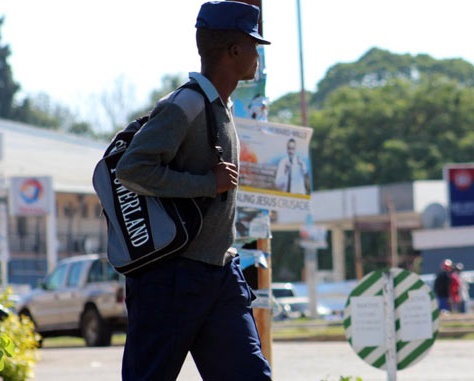ZRP implements strict no-mobile-phone policy for officers on duty! The Zimbabwe Republic Police (ZRP) recently announced a stringent policy restricting the use of mobile phones by officers while on duty. This directive aims to address what authorities describe as an ongoing issue with officers using cell phones during working hours, often to the detriment of their duties.
However, concerns have emerged about the practicality of this policy, particularly for officers who rely on their phones to handle emergency situations and communicate with colleagues.
Overview of the No-Cellphone Directive
The new policy, outlined in a memorandum dated October 31, 2024, was circulated to all police stations within the Masvingo Central District.
The Officer Commanding expressed frustration that, despite prior warnings, many officers continue to disregard the rule prohibiting cellphone usage during working hours. According to the memo, mobile phones should only be accessible to officers during designated break and lunch periods.
The memo states, “With immediate effect, no member is allowed to be in possession of a cellphone whilst on duty. Cellphones should only be used during break and lunch times.” It further indicates that if an officer is found in possession of a mobile phone while on duty, their commanding officer will be held accountable. The responsibility now lies with officers in charge to collect and securely store phones at the start of each shift.
Implementation of the Policy
To enforce the new directive, the ZRP has specified that each Officer in Charge should confiscate mobile phones from their subordinates at the beginning of the shift, storing them in a secure cabinet or safe until break periods.
Additionally, the ZRP’s standard operating procedures (SOPs) will now include explicit guidelines on mobile phone use during duty hours, with officers required to sign off on these regulations, acknowledging they understand and agree to comply.
While this policy seeks to enhance officers’ focus on their duties, questions remain regarding how well it can be executed across all units and situations. For officers stationed in remote areas or those working in high-risk environments, immediate access to communication is often essential for their safety and that of the public they serve.
Practical Challenges and Concerns Raised by Officers
The implementation of this strict cellphone restriction has raised several practical concerns, particularly about operational efficiency and safety. Without alternative communication tools, officers who encounter emergency situations may face delays in requesting support.
In cases of traffic accidents, medical emergencies, or high-stakes criminal incidents, officers frequently rely on their cellphones to call for backup, arrange transportation, or request ambulance services on short notice.
One officer, who preferred to remain anonymous, expressed concerns, saying, “Our cellphones are often the most accessible and quickest way to get in touch with colleagues, especially in emergencies. If radios or other communication devices aren’t available, it could slow down our response times and affect public safety.”
Many officers worry that without an immediate substitute, the lack of cellphones may expose them to greater risks, particularly in instances where backup or assistance is needed urgently.
Calls for Improved Communication Infrastructure
For the policy to be effective without compromising safety, there is a growing call for the ZRP to provide its officers with reliable communication alternatives.
Two-way radios, a staple in police forces worldwide, are frequently cited as a practical solution that would allow officers to communicate effectively without relying on personal mobile phones. However, police stations, especially in rural or less-resourced areas, often face shortages of these critical devices, making cellphone use essential in certain situations.
To ensure smooth implementation of the new policy, officers and public safety advocates are urging the ZRP to invest in more radios and other secure communication devices. By doing so, they argue, the ZRP can maintain the intended professionalism of officers while also upholding the standards of rapid response and accessibility expected in emergency situations.
Balancing Professionalism and Operational Needs
While the ZRP’s decision to restrict cellphone use is primarily aimed at enhancing discipline and focus, it also raises questions about balancing professionalism with practical needs. Cellphone restrictions, if enforced without adequate communication tools, may lead to unintended consequences, including slower response times and a potential increase in risks for both officers and the public.
If implemented in tandem with improved radio and communication support, the no-mobile-phone policy has the potential to create a more disciplined work environment without affecting emergency response. Ultimately, it may lead to a more professional police force that can respond efficiently to incidents without the distractions that come with unrestricted cellphone access.
Looking Ahead: Ensuring Effective and Safe Policing
As ZRP moves forward with this directive, police officials and public advocates alike are keen to see additional measures to address communication needs in the field. Effective policing requires a balance between discipline and the practicalities of fieldwork, and many hope that the ZRP will ensure officers have the tools they need to maintain safety without sacrificing the focus that the new directive aims to enforce.
In the coming months, the impact of this policy will be closely watched, as ZRP assesses its effectiveness and works to address potential challenges faced by officers on the front lines.
